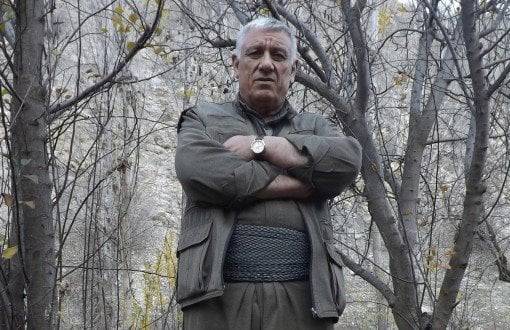In a recent development regarding the Kurdish political landscape, a senior figure from the Kurdistan Workers’ Party (PKK), Cemil Bayık, has made a significant statement concerning the potential disbandment of the organization. In a televised interview, he stated that any decision regarding the PKK’s future must come under the guidance of its imprisoned leader, Abdullah Öcalan. The dialogue follows a series of remarks from Nationalist Movement Party (MHP) leader Devlet Bahçeli, who has called for the PKK to disarm and dissolve without preconditions. Bayık emphasized the lack of required conditions for a congress, drawing attention to ongoing military activities which he deems detrimental to any political progress.
| Article Subheadings |
|---|
| 1) Bayık’s Response to Bahçeli’s Remarks |
| 2) Conditions for Convening a PKK Congress |
| 3) The Role of Abdullah Öcalan |
| 4) Calls for Disarmament |
| 5) Constructive Dialogue or Sabotage? |
Bayık’s Response to Bahçeli’s Remarks
In an interview aired on Stêrk TV on March 13, Cemil Bayık addressed direct comments made by Devlet Bahçeli, the leader of the Nationalist Movement Party (MHP), regarding the PKK’s potential dissolution. Although Bahçeli called for immediate actions to disband the PKK and to declare its official dissolution, Bayık contended that such a move lacks sufficient grounds to proceed. He insisted that while Bahçeli’s statements might convey urgency, they fail to account for essential preconditions necessary for any significant reforms within the PKK. This public confrontation reflects a larger struggle for control of the narrative surrounding the PKK and its trajectory amid ongoing political tensions.
Conditions for Convening a PKK Congress
Bayık elaborated that the fundamental conditions for holding a congress of the PKK are not currently met, thereby rendering any meeting impractical and perilous. He pointed out that Turkish reconnaissance activities over areas under PKK control pose a significant threat, undermining any efforts for peaceful assembly. The PKK had previously declared a ceasefire and signaled a willingness to consider dialogue, yet the ongoing military presence complicates this initiative. Bayık firmly believes that the current atmosphere of tension severities the possibility of convening as desired by Öcalan, stating, “Everyone knows that under these conditions, holding a congress is not possible and would be extremely risky.”
The Role of Abdullah Öcalan
A pivotal element of Bayık’s argument centers around the figure of Abdullah Öcalan, the imprisoned leader of the PKK. Bayık asserted that only Öcalan holds the authority to preside over a congress, having been the founder of the movement and its guiding force. He expressed a strong conviction that without Öcalan’s involvement and oversight, any decisions made would lack legitimacy and fail to address the core issues facing the PKK. He emphasized that “This historic opportunity should not be wasted,” underlining Öcalan’s crucial role in guiding the PKK’s future direction.
Calls for Disarmament
In parallel to Bayık’s comments, Devlet Bahçeli reiterated his demands for the PKK to initiate disarmament. Bahçeli urged the PKK to conduct its congress “immediately, without preconditions,” expressing that this process is an urgent matter that cannot be postponed. His calls essentially frame the PKK’s disbandment as a necessary step in Turkey’s broader reconciliation strategy regarding Kurdish issues. Despite this public insistence, Bayık’s responses elucidate the deep-seated complications inherent within the disarmament dialogue, revealing a contentious divide between official hopes for peace and the realities of the current political dynamics.
Constructive Dialogue or Sabotage?
Bayık acknowledged that while there have been some constructive statements from various parties, such as calls for dialogue, he also expressed concern regarding what he termed “negative rhetoric” that risks derailing potential progress. He indicated that certain expressions of discontent or hostility could sabotage the peace process that many are seeking. Bayık highlighted the importance of fostering a vocabulary that promotes cooperation rather than division, asserting that “Some of the language being used is sabotaging the process… This must be addressed.” His remarks serve as a warning against unchecked rhetoric in a sensitive environment that is precariously poised between continuing conflict and the pursuit of peace.
| No. | Key Points |
|---|---|
| 1 | Cemil Bayık insists that any decisions on PKK disbandment must come from Abdullah Öcalan. |
| 2 | Current military presence hinders the possibility of convening a congress. |
| 3 | Öcalan’s role is critical as founder and leader for any meaningful political progress. |
| 4 | Bahçeli calls for immediate disarmament of the PKK as a priority. |
| 5 | Bayık warns that negative rhetoric could sabotage the peace process. |
Summary
The ongoing dialogue concerning the future of the PKK encapsulates the complexities of peace-building amid entrenched political and military tensions in Turkey. As senior figures from both the PKK and MHP express conflicting perspectives on disbandment and disarmament, critical challenges arise, primarily surrounding the role of Abdullah Öcalan as a determining factor in any potential political restructure. The stakes are notably high, with both parties vying for a foundation of legitimacy and peace in a region historically marked by conflict.
Frequently Asked Questions
Question: What is the significance of Abdullah Öcalan in the PKK?
Abdullah Öcalan is the founder and ideological leader of the PKK, and his involvement is viewed as essential for any considerable transformation within the organization.
Question: Why is the meeting for a congress considered risky?
The risks are attributed to ongoing military reconnaissance flights over PKK-controlled regions, which create a precarious atmosphere for any assembly aimed at discussing peace or disbandment.
Question: How does rhetoric impact the peace process?
Rhetoric plays a crucial role as negative language can exacerbate tensions and undermine constructive dialogue, jeopardizing the potential for reconciliation between conflicting parties.


